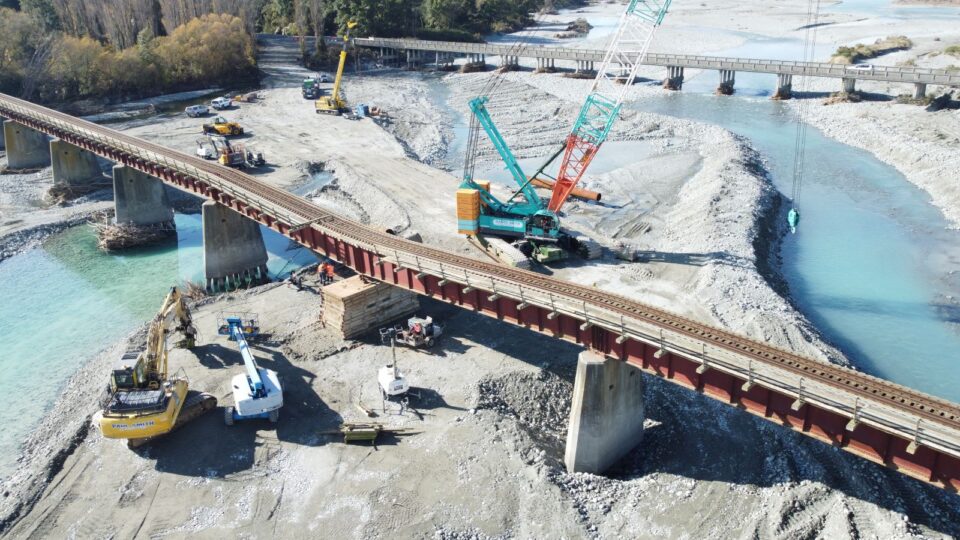The relationship between client and contractor has never been so important writes Alan Pollard, CEO, Civil Contractors New Zealand.
With challenging economic conditions, pressure on council finances, and the need to demonstrate value for money for ratepayers, clients and contractors must engage early in the planning and scoping process.
Recent experience shows that councils that engage regularly and transparently with their contractor community will benefit from improved risk management, streamlined project efficiency, better collaboration between clients, designers, and contractors, more cost certainty, better understanding of practical works when meeting community needs, and (potentially) faster project delivery.
I write this following our recent CCNZ Hirepool Construction Excellence Awards, which recognise excellence in infrastructure project delivery. And we saw no end of local government project success showcased in those outstanding projects, including the HEB Construction Category One award winner featured on the opposite page.
However, one area that needs a paradigm shift in approach is procurement. Across our country, the approach to procurement is inconsistent, and the capacity and capability of councils to manage complex processes is varied.
Despite contrary claims by some councils and despite published procurement criteria, in these tough economic times procurement has predominately become a process to push risk onto the contractor, and in a number of cases clients have exploited the lack of work in the civil sector to falsely drive prices down.
This is not a sustainable situation; it is a race to the bottom.
The concept of ‘value for money’ is too often confused with lowest cost. The reality is – especially when the project cost has been artificially reduced – that often the project cannot be delivered for the contracted price, resulting in inevitable variations as the project progresses. Or, alternatively, the project delivered is suboptimal rather than an enduring solution, which leads to higher maintenance costs sooner.
Procurement across councils needs to have a level of consistency. A higher level of professionalism needs to be applied when processing tenders. The range of skills and differences in application of procurement practices is very broad – some do it very well, while others do it very poorly.
All councils have an obligation to communities to achieve the best value when spending ratepayers’ money, but many lose their way trying to get the lowest price which often leads to the opposite of value for money, sometimes leading to an oppositional relationship with their project partners.
If councils are to deliver the infrastructure investment that our communities need to retain their First World status, we must ensure a healthy and sustainable civil contractor sector. Whether in the far north or deep south, whether a large and diverse contractor business or a small to medium enterprise, whether focused on water or on roading, a broad and healthy civil sector is critical to deliver the country’s much-needed infrastructure programmes.
The most important action that any client can take to ensure a healthy and commercially sustainable contractor market is to have a well-defined, transparent, fully funded, committed, ongoing programme of work. Activities such as forward works briefings allow contractors to better anticipate and respond to economic trends.
By knowing what projects are coming up, contractors can plan their finances and resources more effectively, mitigating the risks associated with economic downturns.
At the end of the day, we all share a common vision – to ensure that our communities have access to modern infrastructure that enhances their health, wealth and well-being.
We have a choice about how we achieve that. The best, most cost-effective outcomes will be achieved where clients and contractors work together in partnership from an early stage in the project life cycle.
If that kind of relationship doesn’t currently exist, I urge council staff to reach out and explore that possibility. We have many success stories that we can share to support your teams in getting the most out of working with your suppliers.
Award-winning emergency response (Image Caption)
The replacement of a washed-out rail bridge on the Main South Line across the Rangitata River, between Ashburton and Timaru, won HEB Construction Category One (projects of a value up to $2m) of the CCNZ Hirepool Construction Excellence Awards 2025.
This 610-metre-long bridge forms a crucial section of our southern rail infrastructure. During a severe weather event on 12 April 2024, one of Bridge 57 piers washed away, causing the closure of a 50-kilometre section of rail between Ashburton and Timaru (severing the rail connection between Christchurch and Dunedin) and halting 45 freight train movements a week. A project of this scope would typically take about five months, yet six days later the contractor had the temporary support structure in place, and the rail bridge was open again. The river is on the boundary of Timaru and Ashburton District Councils, and the contractor received support from both who were thankful for its incredible emergency response success.


